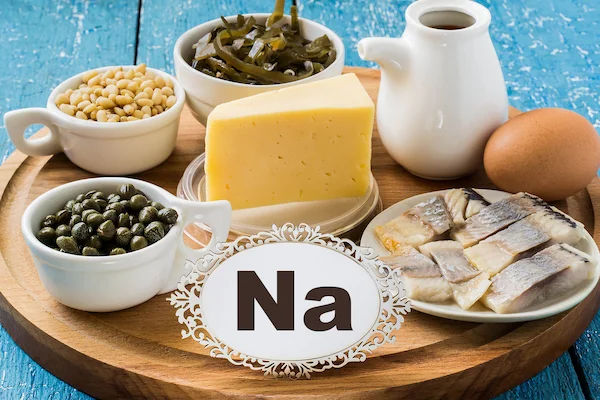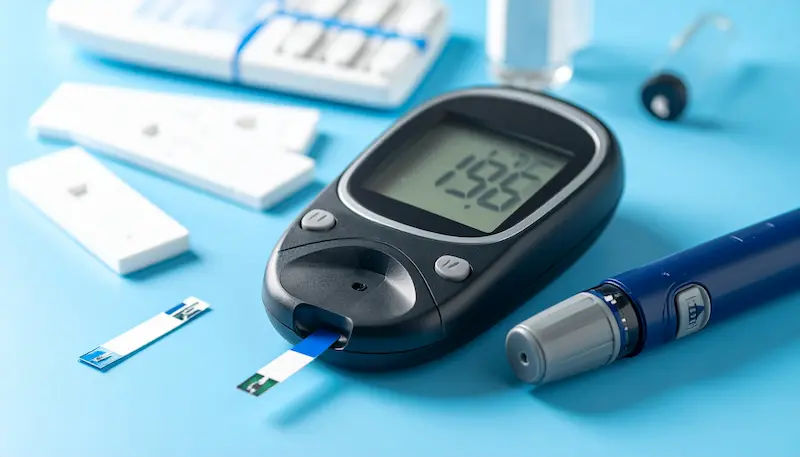Obesity and Hypertension Breaking the Link
Learn how obesity and hypertension are connected and explore strategies to manage weight and blood pressure for better health.

Written by Dr. Siri Nallapu
Reviewed by Dr. Dhankecha Mayank Dineshbhai MBBS
Last updated on 13th Jan, 2026

Introduction
In the landscape of modern health challenges, two conditions consistently appear together, creating a powerful and dangerous synergy: obesity and hypertension (high blood pressure). Often dubbed a "silent killer," hypertension frequently presents no symptoms, while obesity is a highly visible yet complex condition. But how are they connected? This isn't just a case of two common issues occurring simultaneously; obesity is a primary driver of hypertension. The excess body fat, particularly around the abdomen, triggers a cascade of physiological changes that force your heart to work harder and your arteries to endure greater pressure. This article will serve as your comprehensive guide, demystifying the critical link between obesity and hypertension. We will explore the science behind this connection, outline the significant health risks, and, most importantly, provide actionable strategies for management and prevention. Whether you are directly affected or supporting a loved one, understanding this link is the first step toward taking control of your cardiovascular health.
Understanding the Basics: Defining Obesity and Hypertension
Before diving into their connection, it's essential to understand what each condition entails individually.
What is Obesity? More Than Just Weight
Obesity is a complex disease involving an excessive amount of body fat. It's not simply a cosmetic concern but a medical problem that increases the risk of other diseases and health issues. The most common screening tool is Body Mass Index (BMI), which is a person’s weight in kilograms divided by the square of their height in metres.
• Overweight: BMI of 25.0 to 29.9
• Obesity: BMI of 30.0 or higher
However, BMI has limitations. It doesn't account for muscle mass, bone density, or fat distribution. A more accurate indicator of health risk is waist circumference, as abdominal (visceral) fat is particularly metabolically active and harmful.
What is Hypertension? The Silent Killer
Hypertension is a condition where the force of the blood against your artery walls is consistently too high. Blood pressure is recorded as two numbers:
• Systolic pressure (top number): The pressure in your arteries when your heart beats.
• Diastolic pressure (bottom number): The pressure in your arteries when your heart rests between beats.
A normal blood pressure reading is typically less than 120/80 mm Hg. Hypertension is diagnosed when readings are consistently at or above 130/80 mm Hg. The "silent killer" moniker comes from the fact that it can cause damage to your cardiovascular system for years without any obvious symptoms.
Consult a Bariatrician for the best advice
The Powerful Link: How Obesity Causes Hypertension
The relationship between obesity and hypertension is not coincidental; it's causal. Excess body fat, especially visceral fat, sets off a chain reaction within the body.
Physiological Mechanisms at Play
To understand how the body responds, let’s explore the physiological mechanisms at play.
Increased Blood Volume and Cardiac Output
When you have more body tissue, your circulatory system needs to supply blood to a larger area. This requires a higher total blood volume. The heart must pump harder and with more force to circulate this extra blood, leading to increased pressure on the artery walls essentially, how does obesity lead to high blood pressure starts with this simple mechanical principle.
Insulin Resistance and Sympathetic Nervous System
Obesity often leads to insulin resistance, a condition where your body's cells don't respond well to insulin. This not only raises the risk of Type 2 diabetes but also activates the sympathetic nervous system (the "fight or flight" system). This activation causes your blood vessels to constrict and your heart rate to increase, both of which elevate blood pressure.
Hormonal Imbalances: The Role of Leptin
Fat cells (adipocytes) produce hormones. One of them, leptin, regulates appetite but also stimulates the sympathetic nervous system. In obesity, leptin levels are high, but the body becomes resistant to its appetite-suppressing effects. However, the effect on the nervous system persists, contributing to chronic hypertension.
The Vicious Cycle of Weight and Blood Pressure
These factors create a self-perpetuating cycle. Weight gain increases blood pressure. High blood pressure can make physical activity more difficult, potentially leading to further weight gain. Additionally, some medications for hypertension can have side effects like weight gain, making management even more challenging. Breaking this cycle is crucial.
The Combined Health Risks: Why This Duo is Dangerous
Individually, both conditions are major risk factors for serious health problems. Together, their impact is multiplicative. The combination of obesity and hypertension significantly elevates the risk for:
• Heart Disease and Heart Attack: The heart muscle thickens and works under strain, increasing the risk of coronary artery disease.
• Stroke: High pressure can damage arteries leading to the brain, causing them to burst or clog.
• Kidney Disease: Hypertension can damage the blood vessels in the kidneys, impairing their ability to filter blood.
• Type 2 Diabetes: Obesity and hypertension are key components of metabolic syndrome, a cluster of conditions that dramatically increase diabetes risk.
• Sleep Apnoea: Obesity is a primary cause of sleep apnoea, which in turn can worsen hypertension.
The good news? Even modest weight loss can significantly reduce these risks.
Taking Control: Effective Strategies for Management and Prevention
Managing obesity and hypertension is a long-term commitment, but the benefits are profound. The goal is sustainable lifestyle changes.
The Cornerstone: Sustainable Weight Loss
The most effective treatment for overweight patients with hypertension is weight loss. You don't need to aim for a "perfect" weight. Losing just 5-10% of your body weight can lead to a significant reduction in blood pressure. For a 200-pound person, that's only 10-20 pounds.
Designing a Heart-Healthy Diet
Diet is your most powerful tool. The focus should be on whole, unprocessed foods.
The DASH Diet: A Gold Standard
The Dietary Approaches to Stop Hypertension (DASH) diet is specifically designed to combat high blood pressure and is excellent for weight management. It emphasises fruits, vegetables, whole grains, lean protein, and low-fat dairy while limiting saturated fat, sugar, and sodium.
Key Nutrients to Focus On (and Avoid)
• Reduce Sodium: Aim for less than 2,300 mg per day (ideally 1,500 mg). Read labels and avoid processed foods.
• Increase Potassium: Found in bananas, leafy greens, and potatoes, potassium helps balance sodium levels.
• Limit Saturated and Trans Fats: These contribute to heart disease.
The Power of Movement: Exercise for BP Control
Regular physical activity strengthens your heart. A stronger heart can pump more blood with less effort, decreasing the force on your arteries. Aim for at least 150 minutes of moderate-intensity exercise (like brisk walking, cycling, or swimming) per week. Strength training twice a week also helps by improving metabolism.
Medical Management: When Lifestyle Isn't Enough
For some, lifestyle changes alone are not sufficient to control hypertension. Medications such as ACE inhibitors, diuretics, or beta-blockers may be necessary. It is crucial to work with a healthcare professional to find the right medication and dosage for you. If your blood pressure remains high despite your best efforts with diet and exercise, consult a doctor online with Apollo24|7 to discuss a personalised treatment plan. For accurate monitoring, Apollo24|7 offers a convenient home collection for tests like lipid profile and HbA1c to get a complete picture of your metabolic health.
Get Your Health Assessed
Conclusion: A Journey to Better Health
The connection between obesity and hypertension is undeniable and serious, but it is not a life sentence. Understanding this link empowers you to take proactive steps. By focusing on sustainable weight management through a balanced diet and regular physical activity, you can significantly lower your blood pressure and reduce your risk of life-threatening complications. This journey is about progress, not perfection. Every healthy meal and every step you take is a victory. Remember, you don't have to do it alone. Leverage the support of healthcare providers, family, and friends. If you are struggling to manage your weight or blood pressure, booking a consultation with a specialist through Apollo24|7 can provide the guidance and support you need to succeed. Take the first step today towards breaking the link and building a healthier future.
Consult a Bariatrician for the best advice
Consult a Bariatrician for the best advice

Dr. Sharad Sharma
General and Laparoscopic Surgeon
25 Years • MBBS, MS( Gen. Surg.), Dip. In Adv. Lap Surg., FALS, FMAS, FIAGES BARIATRIC SURGEON .
Mumbai
Apollo Hospitals CBD Belapur, Mumbai

Dr. Anand Ravi
General Physician
2 Years • MBBS
Bengaluru
PRESTIGE SHANTHINIKETAN - SOCIETY CLINIC, Bengaluru

Dr. Amrutha G
General Physician/ Internal Medicine Specialist
10 Years • MBBS,DNB(family medicine), Diabetologist-CCEBDM,CCGDM
Bengaluru
Apollo Clinic, Sarjapur Road, Bengaluru

Dr. Neha Shah
Bariatrician
23 Years • MBBS, MS, FIAGES, FAIS, FMAS, FMIS, FALS
Chennai
The Good Weight, Chennai

Dr. Sunil Kaul
General Surgeon
30 Years • MBBS, MS, FICS, FIMSA, FMAS
Delhi
Apollo Hospitals Indraprastha, Delhi
(25+ Patients)
Consult a Bariatrician for the best advice

Dr. Sharad Sharma
General and Laparoscopic Surgeon
25 Years • MBBS, MS( Gen. Surg.), Dip. In Adv. Lap Surg., FALS, FMAS, FIAGES BARIATRIC SURGEON .
Mumbai
Apollo Hospitals CBD Belapur, Mumbai

Dr. Anand Ravi
General Physician
2 Years • MBBS
Bengaluru
PRESTIGE SHANTHINIKETAN - SOCIETY CLINIC, Bengaluru

Dr. Amrutha G
General Physician/ Internal Medicine Specialist
10 Years • MBBS,DNB(family medicine), Diabetologist-CCEBDM,CCGDM
Bengaluru
Apollo Clinic, Sarjapur Road, Bengaluru

Dr. Neha Shah
Bariatrician
23 Years • MBBS, MS, FIAGES, FAIS, FMAS, FMIS, FALS
Chennai
The Good Weight, Chennai

Dr. Sunil Kaul
General Surgeon
30 Years • MBBS, MS, FICS, FIMSA, FMAS
Delhi
Apollo Hospitals Indraprastha, Delhi
(25+ Patients)
More articles from High Blood Pressure
Frequently Asked Questions
1. Can losing weight cure my hypertension?
For many individuals, especially those with mild to moderate hypertension, significant and sustained weight loss can reduce blood pressure to normal levels, potentially reducing or eliminating the need for medication. However, 'cure' may not be the right term, as maintaining a healthy weight is required to keep blood pressure under control.
2. How quickly can blood pressure drop after starting to lose weight?
You may see improvements in blood pressure within the first few weeks of starting a weight loss and exercise program. Even a loss of 2-5 pounds can make a measurable difference. The most significant changes typically occur with a 5-10% reduction in total body weight.
3. What is the best exercise for someone with both obesity and hypertension?
Low-impact, aerobic exercises are ideal to start. Brisk walking, swimming, cycling, and using an elliptical machine are excellent as they get your heart pumping without putting excessive stress on your joints. Always consult your doctor before starting a new exercise regimen.
4. Are there specific foods I should absolutely avoid?
The primary foods to limit are those high in sodium (processed meats, canned soups, salty snacks), added sugars (sodas, sweets, pastries), and unhealthy fats (fried foods, fatty cuts of red meat). Focusing on what you can eat, like fresh produce and lean proteins, is a more positive approach.
5. Is all body fat equally bad for blood pressure?
No. Visceral fat, the fat stored deep in the abdomen around your organs, is far more metabolically active and dangerous for raising blood pressure than subcutaneous fat (the fat under the skin). This is why waist circumference is often a better health indicator than BMI alone.






